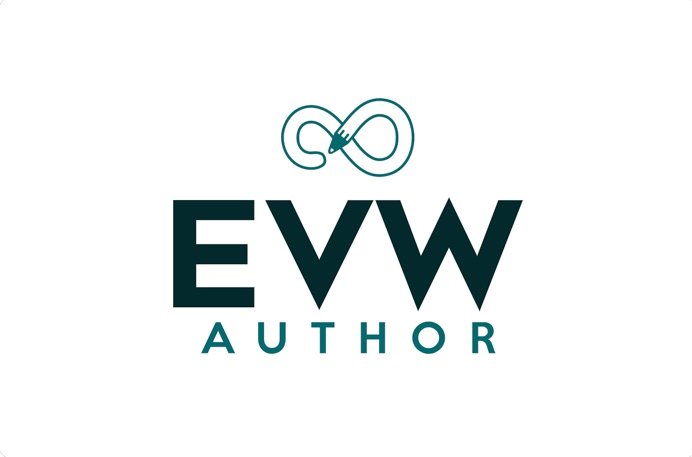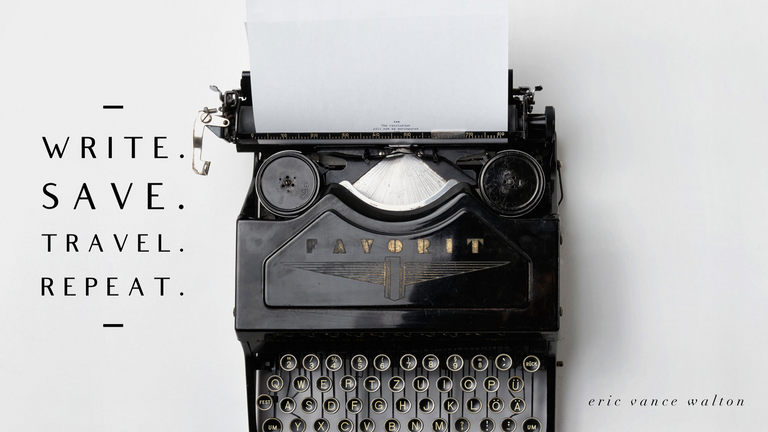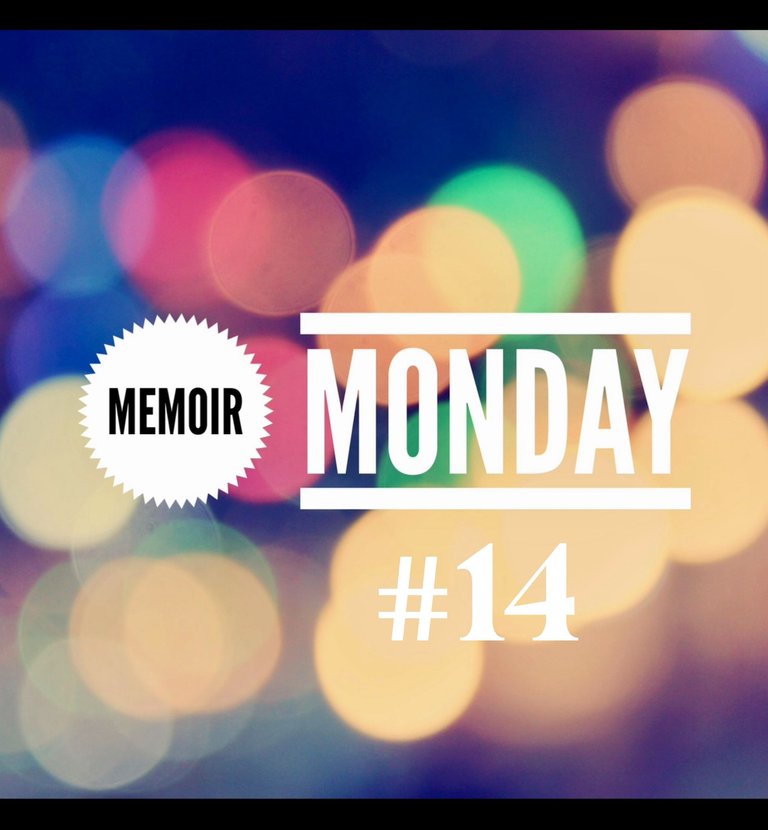
Memoir
/ˈmemˌwär/ noun. a record of events written by a person having intimate knowledge of them and based on personal observation. Usually memoirs. an account of one's personal life and experiences; autobiography. the published record of the proceedings of a group or organization, as of a learned society.
Next week's prompt will make us dig deep into our memories to compare and contrast how much has changed since we were children. I wrote several different drafts of this one. More than anything this prompt served as a mirror, for me, to see how easy it is to become cynical as we age. I always hoped I'd be one of those cool old people who continues to evolve throughout the seasons of their lives. This isn't as easy as I thought it would be, it takes constant work and reflection. Working on next week's prompt gave me a lesson in this. I hope everyone working on the prompt next week gets as much out of this as I did.
Memoir Monday has grown so much that I won’t be able to comment on everyone’s posts anymore (and get my own work done) but I’ll still be supporting your posts with reblogs, votes, and shares on my other social media accounts (X, Facebook, etc.).
For all of those who’ve regularly participated in Memoir Monday - keep going, you’re making great progress in chronicling your very own life story for future generations to enjoy.
For those who missed the inaugural post explaining what the Memoir Monday initiative is all about you can find it here.
Now for next week’s Memoir Monday prompt:
How is life different today compared to when you were a child?
My answer:
Where do I begin? I was born in 1971 and in the last half a century our world has changed considerably. Most of the profound changes I’ve witnessed in my fifty-three years of life have come about, either directly or indirectly, from technology.
As I get older I refuse to give in to cynicism and spite without a fight. This isn't always an easy task for someone in my season of life. When we have more years behind us than we do in front of us it has a tendency to make us remember the past as being much better than it really was and, at the same time, fearful of an incomprehensible future.
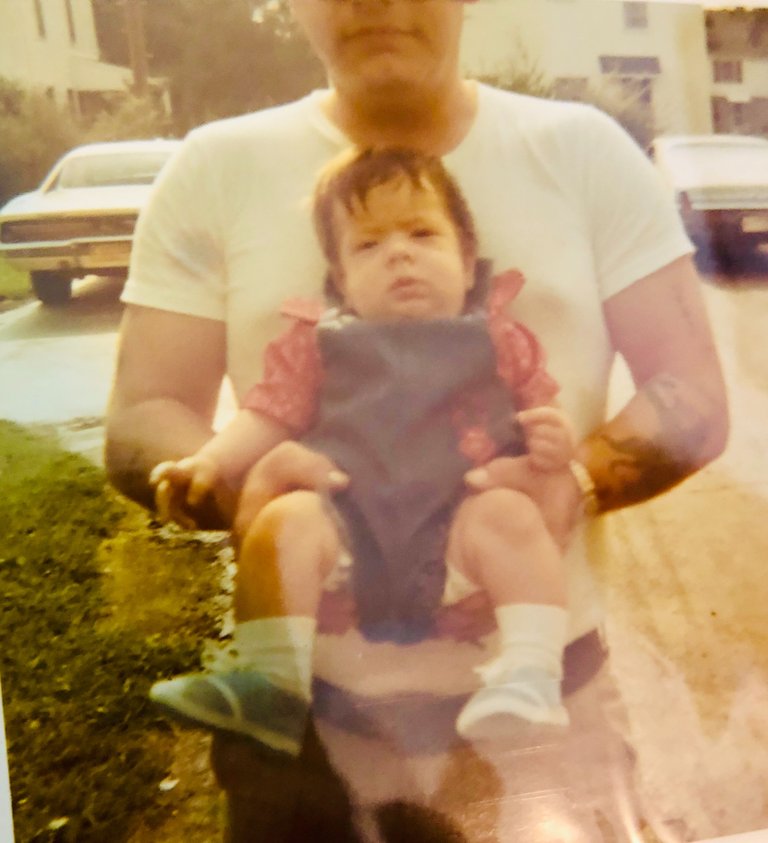
The world during my childhood wasn’t ideal, by any means. Our waterways were heavily polluted by industry, so much so that rivers would catch on fire. The air was thick with smog infused with lead particulates, a byproduct of leaded gasoline. This lowered the public’s IQ measurably. You couldn’t escape second-hand cigarette smoke, it was everywhere. Racism, sexism, and prejudices of all kinds were more overt and impactful. There were only three television stations and those signed off the air at around midnight. Although news seemed to be less biased back then there was no independent media, network news was your only choice. People still got a lot of their local news from the town newspaper or radio. Columbus, Ohio, the city I grew up in had both a morning and an evening newspaper.
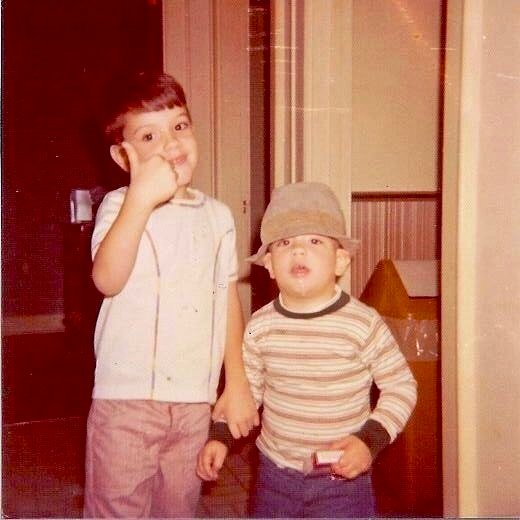
During my childhood the American economy was in a period of stagflation with both high inflation and uneven economic growth. High budget deficits, lower interest rates, the oil embargo, and the collapse of managed currency rates contributed to the economic pain for the poor and middle class. But back in 1970 one dollar was worth almost eight dollars in today’s money.
We’ve managed to improve some of these things in the last half century but the present time has its own unique and serious set of challenges to overcome.
Back in the 1970’s/80’s human relationships weren’t as fractured as they are today. We were less connected, technologically, but much more connected emotionally and psychologically to those people around us.
It pains me to see the lack of interaction between parents and children on the playground. Instead of interacting with their kids, most of them are consumed by their phones. It also makes me sad to see someone walking their dog or outdoors alone with their face buried in their phones. When I see groups of friends at a restaurant table it’s rare to see a moment when they are not paying more attention to their phones than they are to their friends. Time alone with our thoughts is becoming something that people seem to be afraid of in today’s world. The hours of lives lost every day to these smartphones and tablets will be one of the greatest regrets of our modern time.
When I was a child expectations were lower so contentment was more easily attainable. People, in general, weren’t as materialistic and were happier with less. Fifty years ago it was rare that people owned credit cards and the only consumer credit people utilized was a mortgage, a car loan, and maybe a layaway plan at a department store to pay for a bigger purchase or Christmas presents.
Back then if you couldn’t afford something you wanted the general consensus was you saved for it and paid cash. There was also less of a gap between the rich and the poor. Most people fell somewhere in the middle class, they had all their necessities but not as many luxuries as the average person does today. A majority of today's middle class could be more accurately labeled debt-laden working poor.
This concept of deferred gratification is a rarity now. If people want something now they just buy it with credit and not much thought is paid to the long term sacrifice they’ll endure for the short-term euphoria of instant gratification. Financial freedom will be simply out of the question for most people. Most teenagers' first cars are considerably nicer now than vehicles I was able to afford until I was in my thirties. Many of the children of today expect nothing less than the best.
People who are starting their lives with so much that they will feel entitled to those nice things and never feel the deep appreciation for something they’ve had to work really hard for. I don’t think parents are doing their children any favors by spoiling them in this way.
Good times create weak people, bad times create strong people. Civilization continues in this cyclical pattern and has since the beginning of time, I guess. Younger generations will have a harsh reality to face when the economy eventually takes a measurable dip or when they fall on hard times for other reasons as adults. Today, I think people use “stuff” to try to fill the voids they feel in their lives but that never works for long.

Before smartphones and social media became common in the early 2010s, attention spans were longer and people were less self-centered. I miss the times when people truly paid attention to those who were conversing with them. Feeling as though we’re heard is a rare thing now. This might explain all of the attention-seeking behavior.
When speaking with people, more often than not, I feel intense pressure to get my point across before the attention of the person I’m speaking with begins to drift like a fart in the wind. Lack of social skills/social anxiety is especially apparent in the younger generations of today. Many of them don’t even feel comfortable talking on the phone anymore.
The general public and politicians were more moderate during my childhood. Today people are compartmentalized into groups of totally opposing views to the point they’re living in different realities, really. The world definitely wasn’t perfect before political correctness and social media algorithms came into play. There was more of an overt element of racism and sexism but, ironically, as a whole, I think we saw each others’ humanity more.
The political correctness-movement (especially in the US) put a spotlight on all of our differences, the ways in which we were victimized, and all of our prejudices in general. In some ways I think this was good, younger people, as a whole, are less prejudiced. In a larger sense I think it’s held us all back from realizing our similarities, experiencing long term healing, and having genuine relationships and conversations with one another. I think there would be a lot of things we could get past if we could be more genuine and have those difficult but honest conversations.
Media was less pessimistic and divisive in the 1970's and 1980's. Social and mainstream media have amplified every human flaw in our time. The media serves us up a new slurry of fear, outrage, and hate 24/7. I think if you’re caught in a cycle of perpetually focusing on ways you were wronged you eventually adopt a permanent victimhood-mentality and this prevents you from healing, moving forward, and finding real and lasting success and equality.
As an adult I notice people just don’t laugh as much and as freely as they once did. Have any of you other Generation X’rs noticed that? I remember a world that knew how to laugh, loved a good prank or joke, and generally weren’t as serious, sensitive, or uptight.
It worries me how much power mega-corporations have amassed and how much influence they have in our government and with our media. America, in its current state, is essentially a corporatocracy. Regulatory agencies that were supposed to keep the public safe and healthy have been bastardized by a steady stream of billions from the corporations to keep their power and influence steady and growing. This has affected every segment of our society -- healthcare, the military, Wall Street, and definitely our Federal government to name just a few.
Civilizations tend to grow in these sweeping wave patterns, a cycle of dizzying highs and excruciating lows. When I find myself feeling the, “End of the Empire” vibe here America it gives me comfort to think that our society might just very well be in one of those painful low points and will recover.
The world we're living in today is a complicated conundrum but the power is still well within our means to fix it. Our technology has the potential to create a literal utopia on Earth but we need to find a way to end the epidemic of greed/corruption. We also need to restore democracy by removing the tentacles of corporate control of our government and get the government working for the common good again instead of for their corporate constituents.
We need to take a pause and question the motives of everything and everyone, especially ourselves. We must take a more balanced approach to how we choose to use technology, be less complacent/gullible when it comes to politics, and be much more diligent about the trust we place in corporations and our leaders. We need to actively get involved in our future and demand better. This is the only way, as a society, our tomorrows will become better than our yesterdays.
Our civilization seems to be careening towards either a dystopian or utopian future and the choice of which way it goes is totally dependent on decisions we’re making today. There are a multitude of things I miss about the world I grew up in but there are many aspects of our potential future that fill me with immense hope and excitement. I pray that this particular kind of hope never dies inside of us as a species. That hope might just be the thing that saves humanity from itself.
Rules of Engagement
- Please reblog this first post and share on other social platforms so we cast the widest net possible for this initiative;
- Pictures paint a thousand words. Include pictures in your posts if you have them;
- Answer each Memoir Monday prompt question in your own post. If possible, the prompt question will be published in the week prior so you'll have the entire week to answer and publish your own post;
- Have fun with it, don't worry about getting behind, or jumping into the project at any point after we've begun; and
- Lastly, be sure to include the tag #memoirmonday.
It's that simple.
At the end of the next twelve months we'll have created something immensely valuable together. It's so important to know our "whys" in life and there's no better way to do that than this.
Someday all that will be left of our existence are memories of us, our deeds, and words. It's up to you to leave as rich of a heritage as possible for future generations to learn from. So, go ahead, tell your stories. I can't wait to read them.
Be well and make the most of this day. I want to sincerely thank all of the participants thus far. I've really enjoyed reading your posts!
Growing weary of the ads and divisiveness on mainstream social media? If so, why not try Hive? Click on this link to sign-up and join our growing global community.
Let’s Keep In Touch
